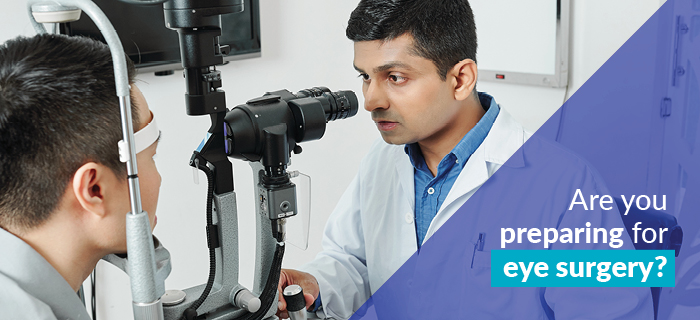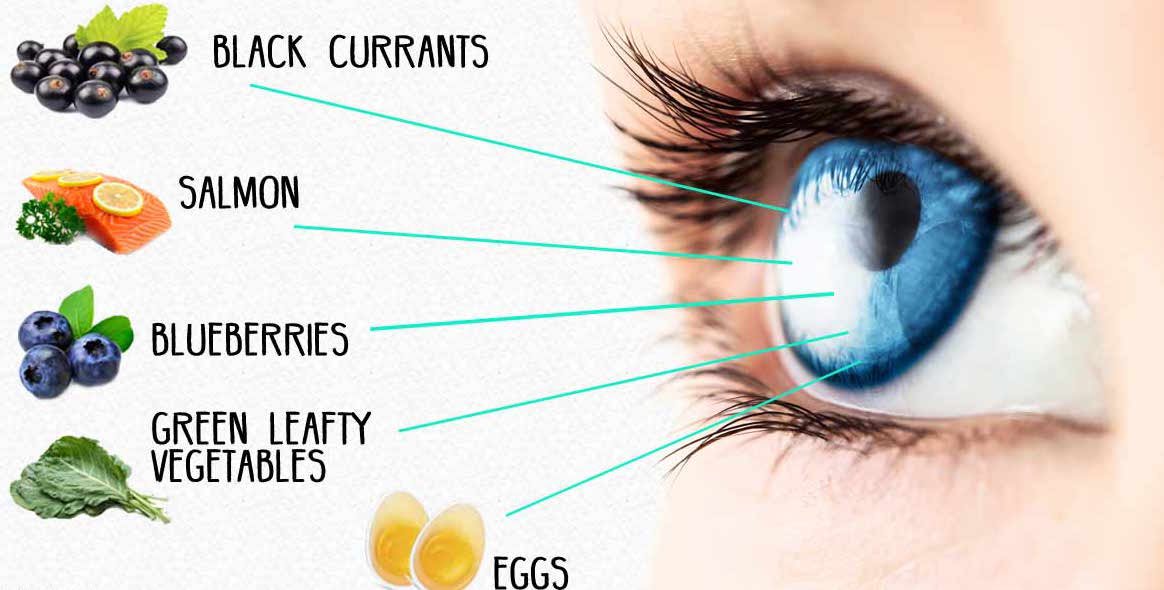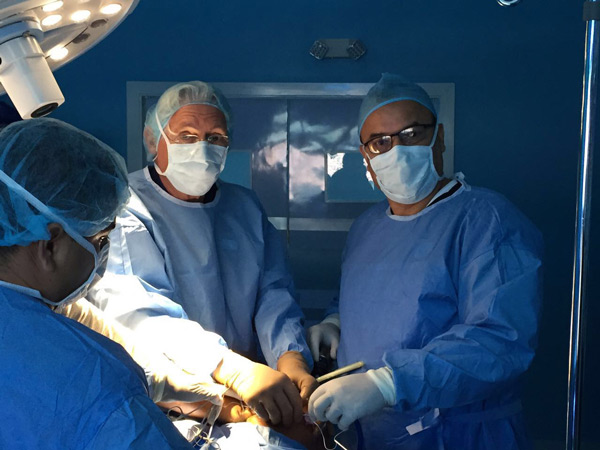Health Store
Gut-Friendly Eats Foods to Support Digestive Health
Introduction
In the realm of wellness, the spotlight often shines brightly on trendy superfoods and fad diets. Yet amidst the chaos of nutritional buzzwords, there exists a fundamental aspect of health that’s often overlooked: gut health. Your gut, often referred to as the “second brain,” plays a pivotal role in not only digestion but also in overall well-being. In this article, we’ll explore the world of gut-friendly eats—foods that nourish and support your digestive system for optimal health.
Fiber: The Gut’s Best Friend
Let’s start with fiber, the unsung hero of digestive health. Fiber acts as the broom that sweeps through your digestive tract, keeping everything moving smoothly. Whole grains like oats, quinoa, and brown rice are rich sources of fiber, providing bulk to your stool and promoting regularity. Additionally, fruits and vegetables—especially those with skins and seeds—are packed with fiber to keep your gut happy and healthy.
Probiotics: Cultivating a Healthy Gut Flora
Now, let’s delve into the fascinating world of probiotics—live microorganisms that confer health benefits when consumed in adequate amounts. These beneficial bacteria colonize your gut, crowding out harmful pathogens and promoting a balanced microbiome. Yogurt, kefir, kimchi, sauerkraut, and other fermented foods are teeming with probiotics, making them excellent additions to your diet for gut health support.
Prebiotics: Fueling Your Gut Microbiome
While probiotics steal the spotlight, prebiotics play an equally crucial role in gut health. Prebiotics are non-digestible fibers that serve as food for probiotics, helping them flourish and thrive in your gut. Foods rich in prebiotics include garlic, onions, leeks, asparagus, bananas, and whole grains. By incorporating prebiotic-rich foods into your diet, you’re providing the fuel necessary to nourish your gut microbiome.
Bone Broth: A Nourishing Elixir for Gut Repair
For centuries, bone broth has been revered as a healing elixir, cherished for its myriad health benefits, particularly for the gut. Rich in collagen, gelatin, and amino acids, bone broth supports gut integrity, reduces inflammation, and promotes healing. Sip on a warm cup of bone broth or incorporate it into soups, stews, and sauces to soothe and nourish your digestive system.
Omega-3 Fatty Acids: Taming Inflammation
Inflammation is the body’s natural response to injury and infection, but chronic inflammation can wreak havoc on your gut health. Omega-3 fatty acids, found abundantly in fatty fish like salmon, mackerel, and sardines, possess powerful anti-inflammatory properties. By incorporating omega-3-rich foods into your diet, you can help tame inflammation and protect your gut from harm.
Herbs and Spices: Flavorful Allies for Digestion
In addition to adding depth and flavor to your meals, herbs and spices also offer a plethora of digestive benefits. Ginger, for example, is renowned for its ability to alleviate nausea and aid in digestion. Turmeric boasts anti-inflammatory properties, while peppermint soothes digestive discomfort. Experiment with various herbs and spices in your cooking to enhance both the flavor and digestive prowess of your meals.
Conclusion
In the quest for optimal health, don’t overlook the importance of gut health. By nourishing your gut with fiber-rich foods, probiotics,
Brain Fit Boost Your Mental Agility and Performance
Unlock Your Brain’s Potential with Mind-Boosting Exercises
In today’s fast-paced world, where information is constantly bombarding our senses and demands on our cognitive abilities are ever-increasing, maintaining optimal brain health and function is paramount. Fortunately, there are effective ways to enhance our mental acuity and unleash the full potential of our brains. Through a combination of lifestyle habits, mindfulness practices, and targeted exercises, we can cultivate a sharper mind and achieve peak cognitive performance.
Understanding the Importance of Brain Fitness
Before delving into the specifics of mind-boosting exercises, it’s essential to grasp the significance of brain fitness. Just as we prioritize physical fitness to maintain a healthy body, we must also prioritize cognitive fitness to ensure a healthy mind. Our brains are incredibly complex organs responsible for processing information, regulating emotions, and controlling bodily functions. By actively engaging in activities that challenge and stimulate our brains, we can enhance neural connections, improve memory retention, and promote overall cognitive function.
Engaging in Regular Physical Exercise
Physical exercise doesn’t just benefit our bodies—it also has profound effects on brain health. Research has shown that regular exercise increases blood flow to the brain, promotes the growth of new neurons, and enhances synaptic plasticity, the brain’s ability to adapt and rewire itself. Whether it’s a brisk walk, a jog, or a workout at the gym, incorporating regular physical activity into our routine can have significant cognitive benefits, improving mood, focus, and mental clarity.
Practicing Mindfulness Meditation
In addition to physical exercise, mindfulness meditation is another powerful tool for enhancing brain fitness. Mindfulness practices involve bringing focused attention to the present moment, cultivating awareness of thoughts and emotions without judgment. Studies have demonstrated that regular meditation can lead to structural changes in the brain, including increased gray matter density in areas associated with attention, memory, and emotional regulation. By training the mind to be more present and attentive, mindfulness meditation can improve cognitive function and resilience to stress.
Challenging Your Brain with Cognitive Exercises
Just as we engage in physical workouts to strengthen our muscles, we can engage in cognitive exercises to strengthen our brains. Activities that involve problem-solving, critical thinking, and memory recall stimulate neural pathways and promote neuroplasticity, the brain’s ability to adapt and learn. Puzzles, brainteasers, and memory games are excellent examples of cognitive exercises that can help maintain cognitive function and ward off age-related decline. Additionally, learning new skills or languages can provide mental stimulation and keep the brain sharp and agile.
Prioritizing Sleep and Stress Management
Adequate sleep and effective stress management are also crucial components of brain fitness. Sleep is essential for consolidating memories, processing information, and restoring cognitive function. Chronic sleep deprivation can impair attention, memory, and decision-making abilities, negatively impacting overall brain health. Similarly, chronic stress can have detrimental effects on the brain, leading to cognitive decline and increased risk of mental health disorders. Prioritizing quality sleep and adopting stress-reduction techniques such as deep breathing, meditation, and time management can support optimal brain function and overall well-being.
Foods that Boost Memory Top Picks for Cognitive Health
Enhancing Memory with Nutrient-Rich Foods
Introduction
In today’s fast-paced world, maintaining cognitive health is more important than ever. Memory plays a crucial role in our daily lives, from remembering important tasks to recalling cherished moments. Fortunately, there are natural ways to support and enhance our memory, starting with the foods we eat. Let’s delve into the world of memory-boosting foods and discover how they can nourish our brains for optimal function.
Fueling Your Brain: The Importance of Nutrition
Just as a car requires fuel to run efficiently, our brains rely on proper nutrition to function at their best. Every bite we take influences our cognitive health, either positively or negatively. By choosing nutrient-rich foods, we can provide our brains with the essential vitamins, minerals, and antioxidants they need to thrive.
Memory-Boosting Superfoods
Certain foods have earned the title of “superfoods” for their exceptional nutrient content and health benefits. These include blueberries, rich in antioxidants that protect brain cells from oxidative stress, and fatty fish like salmon, packed with omega-3 fatty acids essential for brain health. Incorporating these superfoods into our diet can support memory retention and cognitive function.
The Power of Plant-Based Foods
A plant-based diet abundant in fruits, vegetables, nuts, seeds, and whole grains offers numerous benefits for brain health. Leafy greens like spinach and kale are rich in folate, a B-vitamin known to support cognitive function. Additionally, nuts and seeds provide healthy fats, vitamins, and minerals crucial for brain health and memory.
Spices and Herbs for Cognitive Enhancement
The vibrant flavors of spices and herbs not only enhance the taste of our meals but also offer cognitive benefits. Turmeric, commonly found in curry dishes, contains curcumin, a compound with potent anti-inflammatory and antioxidant properties that may protect against age-related cognitive decline. Other memory-boosting herbs include rosemary, sage, and cinnamon, each offering unique benefits for brain health.
The Role of Hydration in Memory
Staying hydrated is essential for overall health, including cognitive function and memory. Even mild dehydration can impair cognitive performance and mood. Drinking an adequate amount of water throughout the day ensures that our brain cells receive the hydration they need to function optimally, supporting memory retention and mental clarity.
Mindful Eating Practices
In addition to choosing the right foods, how we eat can also impact our memory and cognitive health. Practicing mindful eating involves slowing down, savoring each bite, and paying attention to hunger and fullness cues. By cultivating a mindful eating practice, we can enhance our connection to food, improve digestion, and promote better cognitive function.
Balancing Macronutrients for Optimal Brain Function
A well-balanced diet that includes a mix of carbohydrates, proteins, and healthy fats is essential for supporting brain function and memory. Carbohydrates provide glucose, the brain’s primary source of energy, while proteins supply amino acids necessary for neurotransmitter production. Healthy fats, such as those found in avocados and olive oil, support cell membrane integrity and neurotransmitter function.
The Importance of Regular Physical Activity
Physical exercise not only benefits our bodies but also has
Welcome to Holman Family Dental – Where Smiles Shine Bright
Subheading: Meet Holman Family Dental
Welcome to Holman Family Dental, where smiles are not just our business, they’re our passion. Nestled in the heart of our community, our clinic stands as a beacon of excellence in dental care. Led by a team of dedicated professionals, we are committed to providing top-notch dental services that cater to the unique needs of every patient who walks through our doors.
Subheading: A Commitment to Excellence
At Holman Family Dental, excellence isn’t just a goal—it’s our standard. From the moment you step into our clinic, you’ll be greeted with warmth and professionalism. Our team goes above and beyond to ensure that each patient receives personalized care and attention. Whether you’re due for a routine cleaning or seeking advanced dental treatments, you can trust us to deliver exceptional results every time.
Subheading: Comprehensive Dental Services
From preventive care to restorative treatments, Holman Family Dental offers a wide range of services to address all your dental needs. Our skilled dentists are equipped to handle everything from routine check-ups and fillings to more complex procedures like root canals and dental implants. Whatever your dental concerns may be, we have the expertise and technology to provide effective solutions.
Subheading: State-of-the-Art Facilities
Step into our modern and inviting clinic, where cutting-edge technology meets comfort. We’ve invested in the latest advancements in dental equipment to ensure that our patients receive the highest standard of care. From digital X-rays to intraoral cameras, our state-of-the-art facilities enable us to provide precise diagnoses and treatments with minimal discomfort.
Subheading: Personalized Care
At Holman Family Dental, we understand that every patient is unique. That’s why we take the time to listen to your concerns and tailor our treatments to meet your specific needs. Whether you’re anxious about visiting the dentist or have specific dental goals in mind, we’re here to support you every step of the way. Our compassionate approach ensures that you feel comfortable and confident throughout your dental journey.
Subheading: Building Healthy Smiles
Beyond treating dental problems, our mission is to help you achieve and maintain optimal oral health for life. Through patient education and preventive care, we empower our patients to take control of their dental health. From teaching proper brushing and flossing techniques to offering nutritional advice, we equip you with the knowledge and tools you need to keep your smile bright and healthy.
Subheading: A Family-Friendly Environment
At Holman Family Dental, we believe that dental care should be accessible to patients of all ages. Our welcoming atmosphere is designed to make every member of your family feel comfortable and at ease. Whether you’re bringing in your child for their first dental visit or seeking care for yourself, you can trust us to provide gentle and compassionate dentistry for the whole family.
Subheading: Your Smile, Our Priority
Your smile is our priority at Holman Family Dental. We take pride in helping our patients achieve the smile of their dreams, whether through cosmetic enhancements or restorative treatments. Our experienced dentists work
Mastering Stomach Health Tips for Digestive Wellness
Unlocking Digestive Health: Mastering Your Stomach
Understanding Your Stomach
The stomach is a vital organ in the digestive system, responsible for breaking down food into smaller particles for absorption and digestion. Understanding how the stomach functions can help you make informed choices to support digestive health and overall well-being.
The Importance of Digestive Wellness
Digestive wellness is crucial for overall health and vitality. A healthy stomach ensures that nutrients from the foods we eat are properly absorbed and utilized by the body, while also playing a key role in immune function and gut health. By prioritizing digestive wellness, you can enhance your quality of life and reduce the risk of gastrointestinal issues.
Nourishing Your Stomach with the Right Foods
A balanced diet rich in fiber, fruits, vegetables, lean proteins, and healthy fats is essential for supporting stomach health. These nutrient-dense foods provide the vitamins, minerals, and antioxidants needed to maintain optimal digestive function and promote overall wellness. Incorporating a variety of colorful fruits and vegetables into your diet can also help promote a diverse microbiome, which is essential for digestive health.
Stomach-Friendly Eating Habits
In addition to choosing the right foods, adopting stomach-friendly eating habits can further support digestive wellness. Eating slowly, chewing food thoroughly, and avoiding overeating can help prevent indigestion, bloating, and discomfort. It’s also important to stay hydrated by drinking plenty of water throughout the day and limiting the consumption of alcohol, caffeine, and sugary beverages, which can irritate the stomach lining.
Exercising for Digestive Support
Regular physical activity is not only beneficial for overall health but also for digestive support. Exercise helps stimulate digestion by promoting gastrointestinal motility and reducing the risk of constipation. Incorporating core-strengthening exercises, such as planks, yoga poses, and abdominal crunches, can also help support stomach health by strengthening the muscles of the abdominal wall.
Understanding Digestive Discomfort
Despite our best efforts, occasional digestive discomfort may still occur. Understanding the common triggers of digestive issues, such as spicy foods, fatty foods, and stress, can help you identify and avoid potential triggers. Keeping a food diary can also be helpful in pinpointing specific foods or beverages that may be causing digestive upset.
Natural Remedies for Digestive Relief
When digestive discomfort strikes, there are several natural remedies that may provide relief. Drinking ginger or peppermint tea, consuming probiotic-rich foods like yogurt or kefir, and taking digestive enzymes or herbal supplements such as licorice root or chamomile may help alleviate symptoms of indigestion, bloating, or gas. It’s essential to consult with a healthcare professional before trying any new remedies, especially if you have underlying health conditions or are taking medications.
Managing Stress for Digestive Wellness
Stress can have a significant impact on digestive health, exacerbating symptoms such as stomach pain, bloating, and diarrhea. Incorporating stress-management techniques such as meditation, deep breathing exercises, yoga, or tai chi into your daily routine can help promote relaxation and reduce stress levels, thereby supporting digestive wellness.
Seeking Professional Guidance
If you experience chronic or severe digestive issues, it’s essential
Vision Wellness: Comprehensive Ophthalmology Services

Comprehensive Vision Wellness Through Ophthalmology Services
Vision is a precious sense that significantly impacts our daily lives. Comprehensive ophthalmology services play a pivotal role in maintaining and enhancing vision wellness. From routine eye examinations to advanced surgical interventions, these services address a wide range of eye conditions.
The Importance of Routine Eye Examinations
Routine eye examinations are the cornerstone of vision wellness. Ophthalmology services begin with a thorough eye examination, assessing visual acuity, eye muscle function, and the overall health of the eyes. These examinations not only detect refractive errors like nearsightedness and farsightedness but also serve as a preventive measure for early detection of eye diseases.
Advanced Diagnostics for Precise Diagnosis
Ophthalmology services leverage advanced diagnostic technologies to achieve precise and detailed assessments. Optical coherence tomography (OCT), visual field testing, and corneal topography are among the diagnostic tools that provide in-depth insights into the structural and functional aspects of the eyes. This high-tech approach ensures accurate diagnoses and tailored treatment plans.
Tailored Solutions for Refractive Errors
Refractive errors, such as myopia, hyperopia, and astigmatism, can impact vision clarity. Ophthalmology services offer tailored solutions to address these issues. Prescription eyeglasses, contact lenses, or refractive surgery, such as LASIK, provide personalized options for individuals seeking clear and comfortable vision.
Comprehensive Management of Eye Diseases
Ophthalmology services extend beyond routine vision correction to encompass the comprehensive management of eye diseases. Conditions like glaucoma, cataracts, and macular degeneration require specialized care. Ophthalmologists employ medical, laser, or surgical interventions to manage and treat these diseases, preserving vision and improving quality of life.
Specialized Pediatric Ophthalmology
Children’s eye health is a crucial aspect of ophthalmology services. Pediatric ophthalmologists specialize in addressing eye conditions specific to children, including amblyopia (lazy eye), strabismus (crossed eyes), and refractive errors. Early intervention and regular check-ups are essential for ensuring healthy vision development in young eyes.
Advanced Surgical Interventions
Ophthalmology services encompass a spectrum of advanced surgical interventions for various eye conditions. Cataract surgery, refractive surgery, and corneal transplantation are examples of procedures that restore vision and improve the overall health of the eyes. Technological advancements in surgical techniques contribute to better outcomes and quicker recovery times.
Innovations in Retinal Care
Advancements in retinal care have revolutionized ophthalmology services. Treatments for retinal conditions, such as diabetic retinopathy and age-related macular degeneration, include intravitreal injections and laser therapies. These innovations aim to preserve and improve retinal function, preventing vision loss.
Collaborative Approach to Eye Health
Ophthalmology services emphasize a collaborative approach to eye health. Ophthalmologists work in conjunction with optometrists, primary care physicians, and other healthcare professionals to ensure comprehensive and integrated eye care. This collaborative model addresses not only eye-specific issues but also their potential connections to overall health.
Embracing Technological Advances for Patient Convenience
In the digital age, ophthalmology services embrace technological advances for enhanced patient convenience. Online appointment scheduling, telemedicine consultations, and electronic health records streamline the patient experience, making access to vision care more efficient and accessible.
Explore Vision Wellness Through Ophthalmology Services
For those seeking comprehensive
Vision Wellness: Advanced Ophthalmology Treatments

Vision Wellness Unveiled: Exploring Advanced Ophthalmology Treatments
In the ever-evolving field of healthcare, ophthalmology stands as a crucial specialty dedicated to preserving and enhancing the gift of sight. With advancements in technology and medical expertise, ophthalmology treatments have witnessed remarkable progress. Let’s delve into the world of advanced ophthalmology treatments, shedding light on their significance in ensuring optimal vision wellness.
Precision Diagnostics with Modern Imaging
The foundation of effective ophthalmology treatments lies in precise diagnostics. Advanced imaging technologies, such as Optical Coherence Tomography (OCT) and fundus photography, allow ophthalmologists to capture detailed images of the eye’s structures. These diagnostic tools enable the early detection of various eye conditions, guiding ophthalmologists in formulating targeted treatment plans.
Corrective Procedures: Lasers and Beyond
Corrective procedures have become synonymous with ophthalmology treatments. Laser technologies, including LASIK and PRK, offer effective solutions for refractive errors like nearsightedness, farsightedness, and astigmatism. Beyond lasers, innovative intraocular lens implants are revolutionizing cataract surgery, providing patients with the opportunity to achieve clear vision without relying heavily on glasses.
Innovations in Glaucoma Management
Glaucoma, a leading cause of irreversible blindness, demands innovative approaches for effective management. Ophthalmology treatments for glaucoma now include minimally invasive surgical techniques, such as trabecular micro-bypass and laser trabeculoplasty. These advancements aim to reduce intraocular pressure and slow the progression of the disease, preserving the patient’s vision for a longer duration.
Retina Care: A Focus on Advanced Therapies
Diseases affecting the retina, such as age-related macular degeneration and diabetic retinopathy, benefit from cutting-edge therapies. Anti-VEGF injections have become a cornerstone in the management of these conditions, halting abnormal blood vessel growth and preventing vision loss. Ophthalmology treatments in retinal care emphasize early intervention to maximize efficacy.
Innovative Medications Transforming Eye Care
Advancements in pharmaceuticals have introduced innovative medications that play a pivotal role in ophthalmology treatments. From dry eye management to treating inflammatory eye conditions, these medications offer targeted relief with fewer side effects. Ophthalmologists now have a broader spectrum of options to address diverse eye health challenges.
Pediatric Ophthalmology: Early Intervention Matters
Addressing eye health in children requires a specialized approach. Pediatric ophthalmology treatments encompass early interventions for conditions like amblyopia (lazy eye) and strabismus (crossed eyes). Timely assessments and treatments in childhood contribute to the development of healthy vision, setting the stage for a lifetime of optimal eye health.
The Role of Ophthalmology in Age-Related Conditions
As the population ages, age-related eye conditions become more prevalent. Ophthalmology treatments for conditions like presbyopia and cataracts are tailored to meet the unique needs of older individuals. Multifocal lens implants and advanced cataract surgery techniques contribute to maintaining visual acuity in the aging population.
Digital Eye Strain and Technological Solutions
In the digital age, the prevalence of digital eye strain has surged. Ophthalmology treatments now include strategies to alleviate symptoms associated with prolonged screen time. Additionally, blue light-blocking lenses and specialized eye drops offer technological solutions to mitigate the impact of digital devices on eye health.
Ophthalmology Treatments: Navigating Information Resources
For those seeking comprehensive insights into
Vision Wellness: Nurturing Optimal Eye Health

Nurturing Optimal Eye Health: A Comprehensive Guide
Maintaining good eye health is essential for overall well-being, and it involves a combination of lifestyle choices, regular check-ups, and proactive measures. In this comprehensive guide, we explore various aspects of eye health, from common practices to emerging trends, with the aim of promoting clear vision and preventing eye-related issues.
The Importance of Routine Eye Check-ups
Regular eye check-ups are the cornerstone of maintaining optimal eye health. These examinations not only assess visual acuity but also screen for potential issues such as glaucoma, cataracts, and macular degeneration. Early detection is key to effective intervention, making routine eye check-ups an indispensable part of preventive healthcare.
Lifestyle Choices and Eye Wellness
Beyond eye examinations, lifestyle choices significantly impact eye health. A diet rich in nutrients like omega-3 fatty acids, lutein, zeaxanthin, and vitamins A, C, and E can contribute to ocular health. Additionally, practices like proper hydration, adequate sleep, and protective measures against UV rays help safeguard eyes from potential damage.
The Digital Age and Eye Strain
As our lives become more digitally oriented, prolonged screen time has become a common concern. Digital eye strain, characterized by symptoms like headaches and dry eyes, is a growing issue. Implementing the 20-20-20 rule (taking a 20-second break every 20 minutes and looking at something 20 feet away) and using blue light filters can alleviate strain and support eye health.
Preserving Vision in Sunlight
Protecting the eyes from harmful UV rays is paramount. Sunglasses with UV protection help shield eyes from the sun’s damaging effects. Additionally, wide-brimmed hats offer an extra layer of defense. Prioritizing these protective measures not only preserves vision but also reduces the risk of conditions like cataracts.
Addressing Age-Related Eye Conditions
As individuals age, the risk of age-related eye conditions increases. Conditions such as presbyopia, diabetic retinopathy, and age-related macular degeneration may emerge. Regular eye check-ups become even more crucial with age, allowing for early detection and management of these conditions to maintain optimal vision.
Emerging Trends in Vision Care
Advancements in vision care continue to shape the landscape of eye health. From innovative contact lens technologies to breakthroughs in laser eye surgery, these developments offer new possibilities for vision correction and enhancement. Staying informed about these trends ensures individuals can make educated decisions about their eye care.
The Role of Eye Health in Overall Well-Being
Clear vision is integral to daily activities and overall well-being. Beyond the physical aspects, good eye health contributes to mental well-being by reducing the stress and discomfort associated with vision-related issues. Prioritizing eye health is an investment in a higher quality of life and enhanced productivity.
Proactive Measures for Children’s Eye Health
Starting early is key when it comes to eye health. Children should undergo comprehensive eye examinations to detect issues like amblyopia or strabismus. Addressing these concerns early ensures proper visual development and sets the foundation for a lifetime of good eye health.
Eye Health: A Link to Longevity
Research suggests that maintaining good eye health is
Orthopedic Surgery: Precision Care for Musculoskeletal Health

Orthopedic Surgery: Precision Care for Musculoskeletal Health
Orthopedic surgery plays a crucial role in providing precision care for individuals experiencing musculoskeletal issues. From injuries to degenerative conditions, orthopedic surgeons specialize in diagnosing and treating a wide range of problems affecting the bones, joints, muscles, ligaments, and tendons. This article explores the significance of orthopedic surgery in ensuring optimal musculoskeletal health.
Comprehensive Diagnosis and Evaluation
Orthopedic surgeons begin the treatment process with a comprehensive diagnosis and evaluation. Through advanced imaging techniques such as X-rays, MRIs, and CT scans, they gain a detailed understanding of the patient’s musculoskeletal condition. This thorough assessment allows for accurate identification of the underlying issues, enabling the development of personalized treatment plans.
Specialized Treatment Modalities
Once the diagnosis is established, orthopedic surgeons employ specialized treatment modalities tailored to the specific needs of each patient. Non-surgical interventions, such as physical therapy and medication, are often explored as initial options. However, when surgical intervention becomes necessary, orthopedic surgeons utilize their expertise to perform procedures ranging from arthroscopy to joint replacement surgeries.
Joint Replacement Surgeries
Joint replacement surgeries represent a cornerstone of orthopedic interventions, particularly for conditions like osteoarthritis. Surgeons replace damaged or deteriorated joints with artificial implants, providing relief from pain and restoring functionality. These procedures have significantly improved over the years, with advancements in materials and surgical techniques leading to enhanced outcomes and quicker recovery times.
Sports-Related Injuries
Orthopedic surgery plays a vital role in addressing sports-related injuries, catering to athletes at various levels. From torn ligaments to fractures, sports injuries can have a significant impact on an individual’s performance and overall well-being. Orthopedic surgeons work closely with athletes to diagnose and treat these injuries, helping them regain optimal function and return to their respective sports.
Minimally Invasive Approaches
Advancements in medical technology have paved the way for minimally invasive orthopedic procedures. These techniques involve smaller incisions, reduced tissue damage, and quicker recovery times compared to traditional open surgeries. Patients undergoing minimally invasive procedures often experience less postoperative pain and scarring while benefiting from shorter hospital stays.
Orthopedic Surgery: A Path to Improved Quality of Life
Orthopedic surgery contributes significantly to improving the quality of life for individuals suffering from musculoskeletal conditions. Whether it’s relieving chronic pain, restoring mobility, or enhancing overall function, orthopedic interventions are designed to address the unique needs of each patient. The goal is to enable individuals to lead active, pain-free lives.
In the realm of musculoskeletal health, orthopedic surgery stands as a beacon of hope, providing precise and effective solutions to a myriad of conditions. To learn more about orthopedic surgery and the transformative impact it can have on your musculoskeletal well-being, visit Orthopedic Surgery.
Conclusion
In conclusion, orthopedic surgery remains at the forefront of medical advancements, offering tailored solutions to individuals grappling with musculoskeletal issues. Through comprehensive diagnosis, specialized treatment modalities, and advancements in surgical techniques, orthopedic surgeons play a pivotal role in restoring and enhancing the musculoskeletal health of their patients. If you or someone you know is facing musculoskeletal
Precision Orthopedic Evaluations for Comprehensive Care

Precision Orthopedic Evaluations for Comprehensive Care
Orthopedic evaluations are a cornerstone of musculoskeletal health, providing crucial insights for personalized and effective treatment plans. In this article, we delve into the significance of orthopedic evaluations and their role in ensuring comprehensive care for individuals experiencing orthopedic issues.
The Foundation of Orthopedic Care
Orthopedic evaluations form the foundation of effective orthopedic care. These assessments involve a thorough examination of the musculoskeletal system, encompassing bones, joints, ligaments, tendons, and muscles. This comprehensive approach enables orthopedic specialists to identify the root causes of pain, discomfort, or reduced mobility.
Diagnostic Precision Through Imaging
To enhance the precision of orthopedic evaluations, diagnostic imaging techniques such as X-rays, MRI, and CT scans are often employed. These technologies provide detailed views of the internal structures, aiding in the accurate diagnosis of conditions such as fractures, arthritis, or soft tissue injuries.
Personalized Treatment Plans
Orthopedic evaluations play a pivotal role in developing personalized treatment plans. Each patient’s condition is unique, and orthopedic specialists tailor their recommendations based on the specific findings of the evaluation. This personalized approach ensures that interventions address individual needs effectively.
Early Detection and Intervention
One of the key advantages of orthopedic evaluations is their ability to detect issues in their early stages. Early intervention can prevent the progression of conditions, reduce the risk of complications, and enhance the likelihood of successful treatment outcomes.
Assessment of Joint Functionality
Orthopedic evaluations focus on assessing joint functionality. This includes evaluating the range of motion, stability, and overall performance of joints. By understanding how joints function, orthopedic specialists can design interventions to restore or optimize their capabilities.
Addressing Chronic Conditions
For individuals dealing with chronic orthopedic conditions such as osteoarthritis or rheumatoid arthritis, regular orthopedic evaluations are essential. These assessments help in monitoring the progression of the condition, adjusting treatment plans as needed, and improving the overall quality of life for patients.
Collaboration with Physical Therapy
Orthopedic evaluations often go hand-in-hand with physical therapy. The findings from the evaluation guide physical therapists in developing targeted rehabilitation exercises and strategies to improve strength, flexibility, and overall musculoskeletal function.
Preventive Measures and Lifestyle Recommendations
Orthopedic evaluations extend beyond diagnosis and treatment planning. Orthopedic specialists provide valuable guidance on preventive measures and lifestyle modifications. This may include advice on proper ergonomics, exercise routines, and habits that support musculoskeletal health.
Patient Education and Empowerment
Informed patients are empowered patients. Orthopedic evaluations offer an opportunity for patients to gain a deeper understanding of their musculoskeletal health. Orthopedic specialists educate patients about their conditions, treatment options, and proactive steps they can take to maintain or improve their orthopedic well-being.
Accessible Orthopedic Evaluations Through Advanced Telehealth
In the modern era, orthopedic evaluations have become more accessible through advanced telehealth options. Individuals can connect with orthopedic specialists online at Orthopedic Evaluations, allowing for convenient consultations and expert guidance from the comfort of their homes.
In conclusion, precision orthopedic evaluations are a cornerstone of comprehensive musculoskeletal care. From accurate diagnoses to personalized treatment plans and ongoing monitoring,





